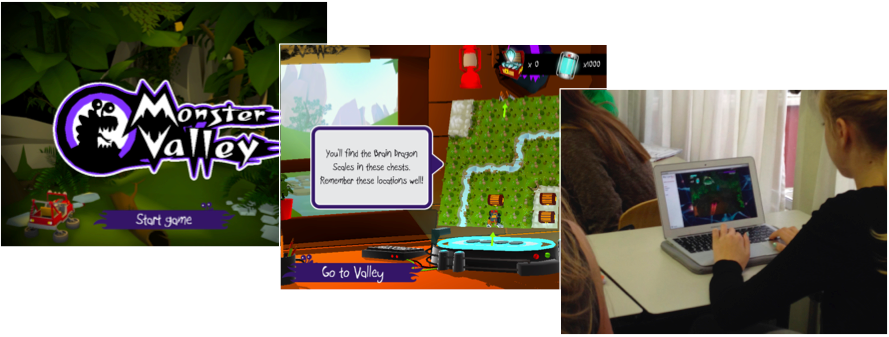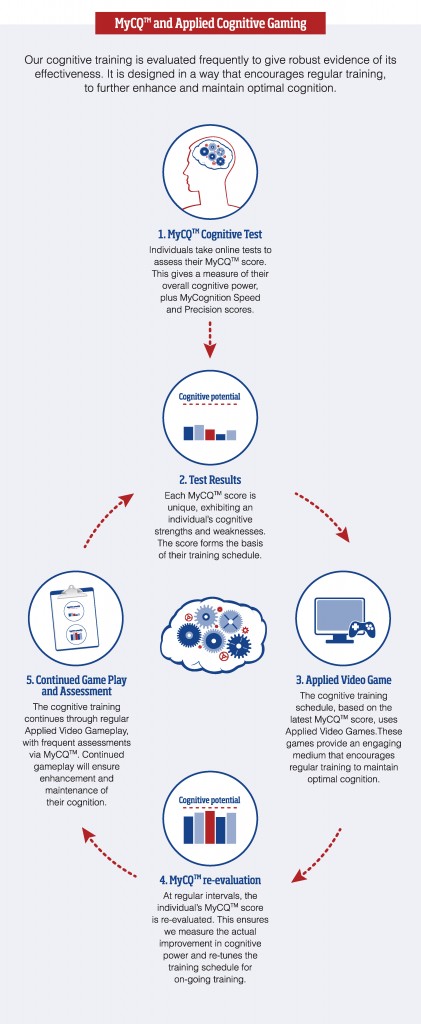This guest post was submitted to us by Duncan Knight – Chief Executive Officer at MyCognition.
MyCognition is a new cognitive health organisation, that offers a fascinating, fun approach to assessing and improving cognitive health. MyCognition work in the education, business and health sectors to help enhance and further understand cognitive function. Duncan’s latest update brings news of how MyCognition are hoping to improve the lives of those with neurological and psychological conditions using their unique gaming therapy.
The Benefits of Gaming as Therapy
Applied, or serious gaming as it is sometimes called, is becoming an increasingly popular platform for cognitive training. Often called brain training in contemporary society. Traditional cognitive training is a very well understood training method, however it requires time and resources to be carried out. It is also not as engaging as it could be.
Therefore using video games as a therapy has become a more compelling option for some people. It is more engaging, resulting in higher training compliance, less time consuming as it is self-administered and less costly than traditional training.
Much of my recent work has been with students of both primary and secondary school age. They get to measure their cognitive capacity with our assessment tool MyCQ and then play one of our video games to train their cognition. They are all interested in what their cognitive measurements are and get very competitive with each other even when completing the assessment!
When playing our cognitive training games they are also enthused to see how they score and constantly compare these scores with the scores of their peers. This is very satisfying to see as it supports the idea that a self-administered cognitive training game is the way to go for students.

My Cognition games are designed to enhance cognition in a fun way. They are all linked to MyCQ™, cognition assessment tool, which assesses cognition before and during gameplay.
My experience working with business people is a little different. They are not as interested in the competitive side of playing the game. I notice they are more compelled by the potential outcome of having an increased cognitive ability. They genuinely want to be able to make more accurate and timely decisions at work. Many have shared the same sentiments that they want to be less stressed by having as much time as possible to do their work and not stay late to complete it.

MyCQ infographic shows the various processes and stages involved in an Applied Cognitive Gaming assessment.
We know that having an increased cognition will improve their efficiency. Working with a group of people with health motivations is completely different again. I met with a group of incredibly motivated young men who have been diagnosed with Schizophrenia. All of them were taking part in holistic programs including medication, counseling and cognitive therapy. The medication was helping them with their delusions, but the side effects make it impossible to find work or attend college.
They all said cognitive therapy was extremely boring and motivating themselves to attend these sessions became difficult. All of these patients spend much of their time playing console games such as GTA, Call of Duty and The Elder Scrolls. I was worried they wouldn’t want to play our video game (it didn’t cost US$500k to make). However their personal motivations to increase their cognition meant they said they would be happy to play and train. They want to lead as normal a life as possible, be productive and add value to their lives and the world around them. I take my hat off to them.
We are now running our first clinical trial with some of these Schizophrenia patients. Also included in this trial are those with a diagnosis of Depression and OCD.
Later this year I am going to work with much older patient populations. Folk with Parkinson’s and Alzheimer’s; it will be fascinating to see how they react to gaming as a therapy.

